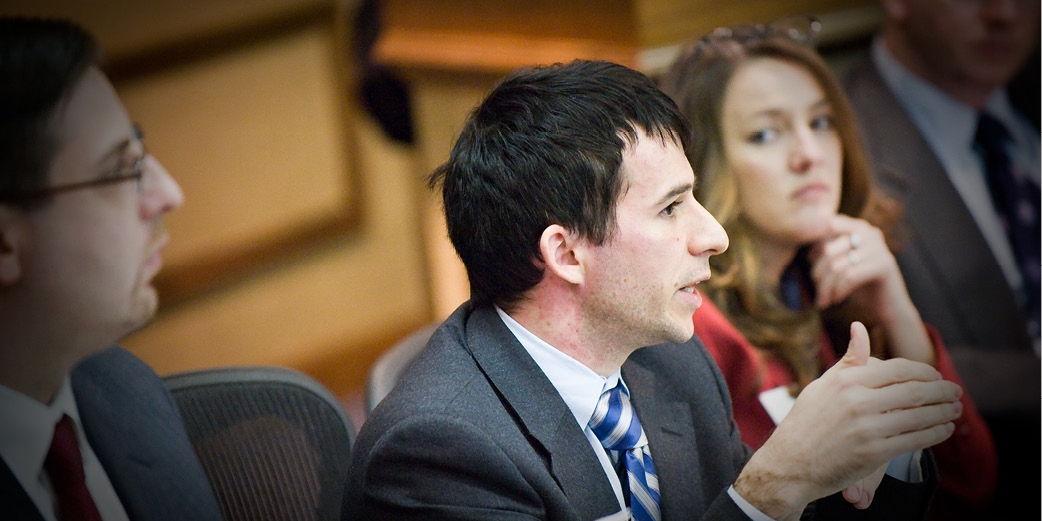Thatcher's Greatest Strength Was Her Greatest Weakness
17 May. 2013 | Comments (0)
![]()
At her funeral ceremony tomorrow, we will remember Margaret Thatcher as much for her leadership style as for her polarizing politics — in fact, the two are almost identical. The essence of Thatcher's leadership was her steadfast, tenacious, and determined style which is more often associated with revolutionaries than conservatives. As the head of the Conservative party, she attacked the status quo and stuck to her guns in driving her agenda through opposition. It is precisely those qualities that made her the most influential British politician since Winston Churchill.
However, just as we've found in our decades of experience consulting to senior leaders — including CEO's of major companies — Thatcher's greatest strengths were also her biggest weaknesses.
Leadership is often defined in terms of opposites — autocratic vs. democratic, task-oriented vs. people-oriented, short-term vs. long-term. One fundamental duality — most evident in Prime Minister Thatcher's case — concerns a leader's interpersonal style: the assertive, forceful approach vs. a participative, enabling approach.
Most leaders intellectually understand the complementary nature of forceful and enabling leadership. Nonetheless, we find over and over again that few leaders are able to integrate both sets of behaviors in their own repertoire. Instead, they gravitate to one side or the other and risk taking that approach to such an extreme that it reduces the complementary approach to a void. We have all seen hard-charging, forceful leaders who come on too strong and diminish the ability of other people to contribute. And we have all seen the flipside, when a supportive people-person seems unable to make the tough calls and drive for results.
It's a scary proposition for most leaders that the very qualities that have been central to their success can turn out to be the biggest threats to their careers, as we explain in Fear Your Strengths. This raises a choice every leader must make, even if most don't give it much thought: Should you keep playing to your strength and risk overdoing it, or build up other capabilities where the odds of success are uncertain? Let's take Thatcher's story as a case study:
Margaret Thatcher was, as HBR senior editor David Champion put it, a fighter. It was her trademark grit, determination, ideological certainty, and scorn for consensus politics that drove her political achievements — privatization and the revitalization of the British economy, full repudiation of the socialist experiment, standing up to the tyranny of the Soviet Union. She gained so much respect on the world stage that Britain was able to exert great influence around the globe, winning over none other than U.S. President Ronald Reagan as a vocal advocate.
But it was overdoing those strengths that made Thatcher so divisive. She could be obstinate, stubborn, uncompromising; what The Economist called "a prim control freak." Her fighting spirit left her with a cabinet that had learned its lesson too many a time: It was pointless to contradict or challenge her. She denied herself a loyal opposition — a counterforce to keep her honest, to challenge thinking, to test out ideas, and elevate understanding. Thatcher dealt with healthy opposition within her camp the same as she dealt with opposition from rivals: She came out swinging.
"I must say the adrenaline flows when they really come out fighting at me and I fight back," she once said, "I stand there, and I say 'Now come on Maggie, you are wholly on your own; no one can help you.' And I love it."
It was her unwillingness to consider other opinions and refusal to back down on what seemed a relatively minor domestic issue — a new system of local taxation called the poll tax — that led to her political downfall. Even when key cabinet ministers warned her that the measure would backfire, she fought on, crossing the line between conviction and rigidity. Shortly after, violent public protests erupted and her approval rating plummeted to 20 percent, the lowest in British history. By the end of the year, she was forced to step down. John Major, her successor, promptly eliminated the poll tax in favor of the council tax that still exists today.
Now, the straightforward advice for forceful leaders like Margaret Thatcher is that they have two options: They can ease up at times on their great ability to take strong stands and hold their ground — that is, choose their battles more selectively. They can also do the opposite of what they're good at — allow a trusted advisor or group of advisors to influence them — to help keep their worst tendencies in check. Admittedly, for self-made types like Thatcher whose life experience has taught them that they can only count on themselves, that's counterintuitive. Still, we've seen it done. Tigers can change their stripes, at least enough to stay out of trouble.
But here's our question for you: What if Prime Minister Thatcher had learned to be more open to influence and selective in choosing her battles — could she still have had the tremendous impact that she undeniably had, but with a perhaps more graceful exit from office? Would her legacy have been remembered differently — more firm than rigid, more strong than stubborn, less polarizing and divisive?
This blog first appeared on Harvard Business Review on 04/16/2013.
View our complete listing of Diversity & Inclusion and Leadership Development blogs.
-
About the Author:Rob Kaiser
Rob Kaiser is president of Kaiser Leadership Solutions. In addition, he is an advisor, author, and internationally recognized expert on leadership. He began his career at the Center for Creative Lead…
-
About the Author:Robert Kaplan

Robert Kaplan is founding partner of Kaplan DeVries Inc. He is also the co-author of HBR article Stop Overdoing Your Strengths.…






.png)




0 Comment Comment Policy